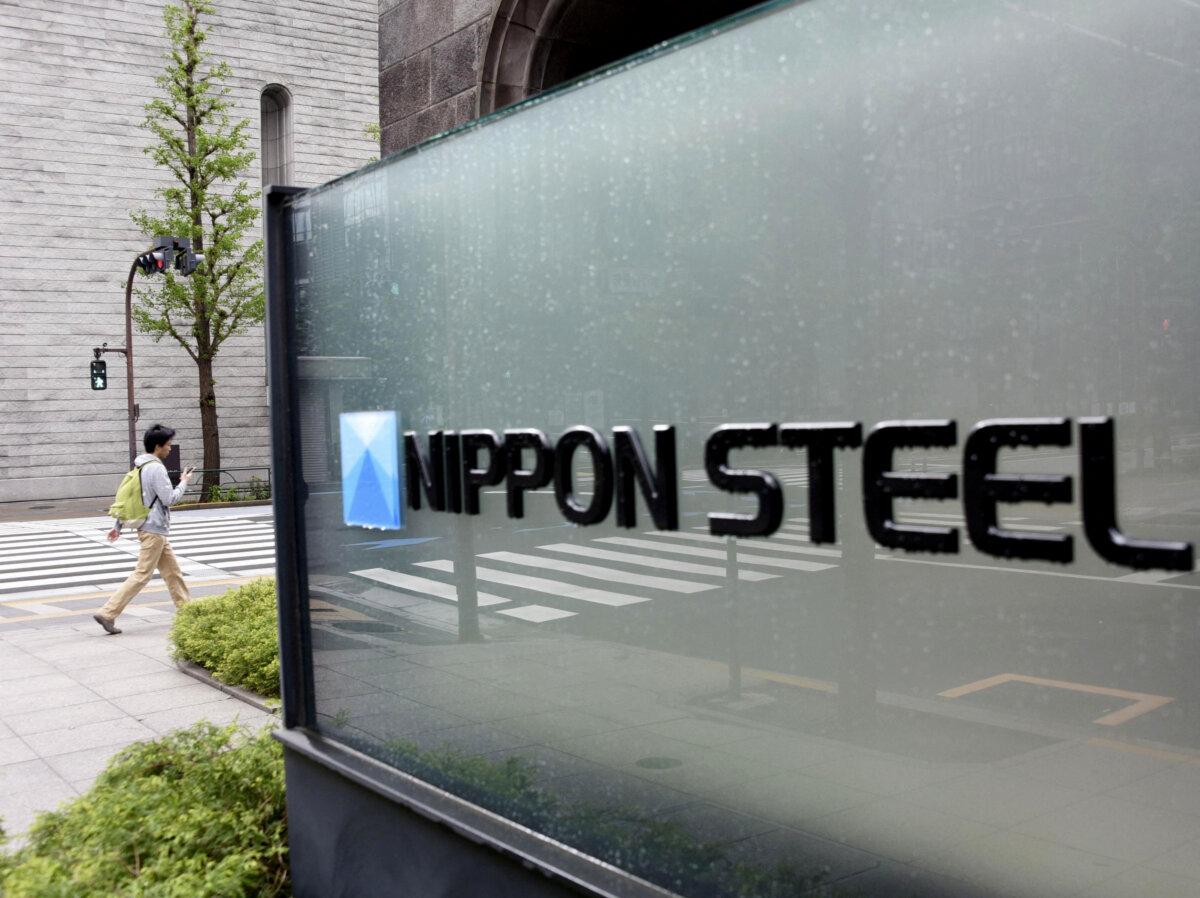Nippon Steel Finalizes $15 Billion Takeover of US Steel

By Andrew Moran
Nippon Steel and U.S. Steel announced on June 18 that they have finalized their nearly $15 billion acquisition deal. As a result, shares of the U.S. steel giant stopped trading on the New York Stock Exchange.
A notice confirmed that the New York Stock Exchange (NYSE) informed the Securities and Exchange Commission that the U.S. steelmaker’s shares would be delisted following the completion of Nippon Steel’s acquisition.
The stock, which debuted on the NYSE in 1901, ceased trading at 8:25 a.m. ET on June 18.
In a joint statement, the companies announced that Nippon Steel closed its $14.9 billion acquisition of the struggling U.S. steelmaker.
Following through on its initial bid in 2023, Nippon acquired 100 percent of U.S. Steel’s shares at $55 per share.
Nippon and U.S. Steel leaders thanked President Donald Trump for his participation in the deal.
“Thanks to President Trump’s bold leadership, American workers secured the best possible deal. U.S. Steel will remain rooted in the United States and continue to call Pittsburgh home,” U.S. Steel CEO Dave Burritt said in a statement.
“Through our partnership with Nippon Steel, we are poised to grow better and bigger, with transformative investment, cutting-edge technology, and the creation of good-paying jobs across the United States.”
Nippon’s crude steel output capacity is projected to increase to 86 million tons annually, inching closer to the company’s 100-million-ton goal, according to the statement.
The deal has been a political hot potato for the past two years.
Trump initially opposed the Japanese company’s bid during the 2024 election campaign.
“We saved the steel industry. Now, U.S. Steel is being bought by Japan. So terrible,” he said after a Jan. 31 meeting with the president of the Teamsters labor union in the nation’s capital.
However, the president changed his position upon returning to the White House. In April, Trump authorized a 45-day review of the agreement, reversing his predecessor’s decision to block Nippon’s purchase over national security concerns.
Shortly after the Committee on Foreign Investment in the United States completed its review and the companies received regulatory approvals, Trump signed an executive order setting up Nippon’s investment in U.S. Steel.
As a condition of support, Trump required the two companies to sign a national security agreement. The U.S. government would possess a “golden share,” which grants the president veto power over several corporate decisions, such as relocating jobs or production outside the United States, changing the name, and moving U.S. Steel’s headquarters from Pittsburgh.
The “partnership”—as the steelmakers and Trump have described the deal—would see U.S. Steel receive $11 billion in investment over the next three years. This includes $1 billion for a new domestic mill, which is expected to increase by a further $3 billion in subsequent years.
Japanese investors have been placing significant bets on the U.S. economy under Trump’s leadership.

Japanese tycoon Masayoshi Son, the founder and CEO of SoftBank Group, announced in December a $100 billion investment in the United States over the next four years.
“My confidence level in the economy of the United States has tremendously increased with his victory,” Son said at a news conference at the time. “President Trump is a double-down president. I’m going to have to double down.”
Son will also head the Stargate Project, a four-year, $500 billion investment in constructing new artificial intelligence infrastructure in the United States.
The Steel Deal
In March, Trump imposed 25 percent tariffs on steel imports. These levies were increased to 50 percent for most countries exporting steel to the United States.
Trump justified the tariffs, imposed under Section 232 of the Trade Expansion Act of 1962, by arguing that foreign subsidies and dumping practices harmed domestic producers and weakened the U.S. industrial base.
The domestic steel industry lauded the president’s tariff increase, stating that global overcapacity and production are growing while worldwide demand has been flat.
“Given these challenging international conditions that show no signs of improvement, this tariff action will help prevent new surges in imports that would injure American steel producers and their workers,” Kevin Dempsey, the president and CEO of the American Iron and Steel Institute, said in a statement to The Epoch Times.



